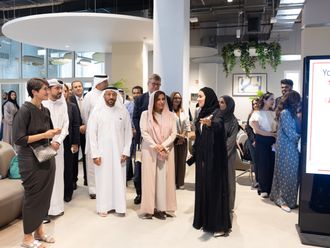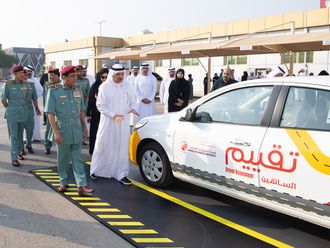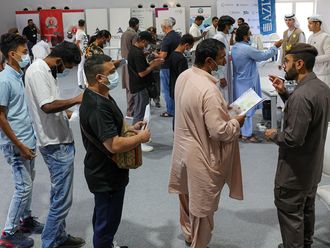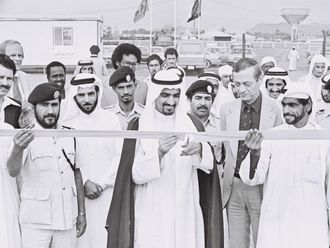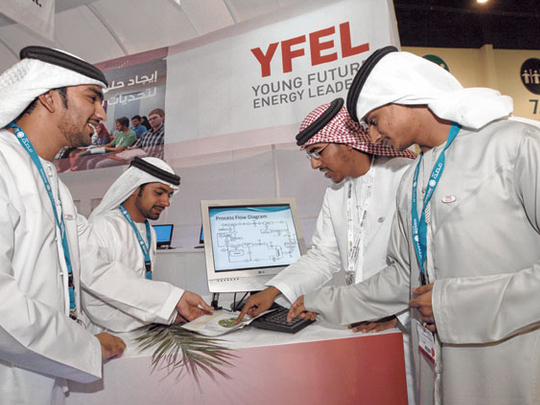
The conversion of palm tree waste into bio-fuel and deriving mathematical solutions to reduce C02 emissions were but a few projects students showcased at last week's World Future Energy Summit.
Masdar Institute of Science and Technology (MIST) enrolled 150 students in its Young Future Energy Leaders (YFEL) programme that kicked off at the summit in Abu Dhabi last week.
In its second year, the now year-long programme allowed students to showcase their research projects to key world players in the field of renewable and sustainable energy.
"The aim of the programme is to raise the youth's awareness and engage them in the field of renewable energy and sustainability," said Aisha Al Atiqi, MIST outreach officer for the YFEL programme. "We are using the YFEL programme as a platform for students with innovative projects and providing them with full academic and library resources."
New recruits
The idea is that young professionals, UAE domiciled and international students interested in the field of renewable and sustainable energy can enroll in the YFEL programme; to be mentored and trained by MIST professors.
"At MIST we want to raise the youth's awareness of the opportunities available to them to study at MIST," said Aisha. Besides attending debate and workshop sessions at last week's summit, the YFEL students will attend technical, policy and leadership courses throughout the year.
Noora Al Daheri is on the YFEL programme and also a PhD student at MIST. The 24-year-old believes the programme to be a good initiative that brings together youth interested in finding alternative sources of energy closer to decision makers. "To see old leaders speaking about our problems is not fair," said Noora. "The [environmental] problems they are talking about will happen in the future and if we the youth don't take action they won't be solved." For these reasons a group of final year chemical engineering students at UAE University (UAEU) opted to pursue a graduation project in the field of renewable energy.
Abdullah Al Hammadi, Mohammad Al Hosani, Salem Al Ka'abi and Yassir Zuba'a, are working on methods to make the production of bio-fuels from palm tree waste economically viable and efficient.
Helping the environment
"As future engineers we want to show, through this project, what we can do for our environment and country," said Al Hammadi. "The UAE has more than 40 million palm trees which each produce more than 15 kilogrammes of waste per year."
It is the biological composition of the waste, made up of organic compounds cellulose and hemicellulose, which can be broken down into glucose and converted to bio-ethanol for use as energy to fuel cars, for example. "This is a more complicated and expensive way of generating bio-fuel than say using food sources such as corn; which is why it isn't in industrial scale production," Dr Sulaiman Al Zuhair, Associate Professor of Chemical Engineering at UAE and mentor to the students, said. He said they are trying use a process that is "cheap and comparative". They will use enzymatic reactions to breakdown cellulose, an organic compound, which can sustain disintegration.
Be an energy leader
To apply for Masdar Institute of Science and Technology's Young Future Energy Leaders programme:
Email: yfel@masdar.ac.ae


